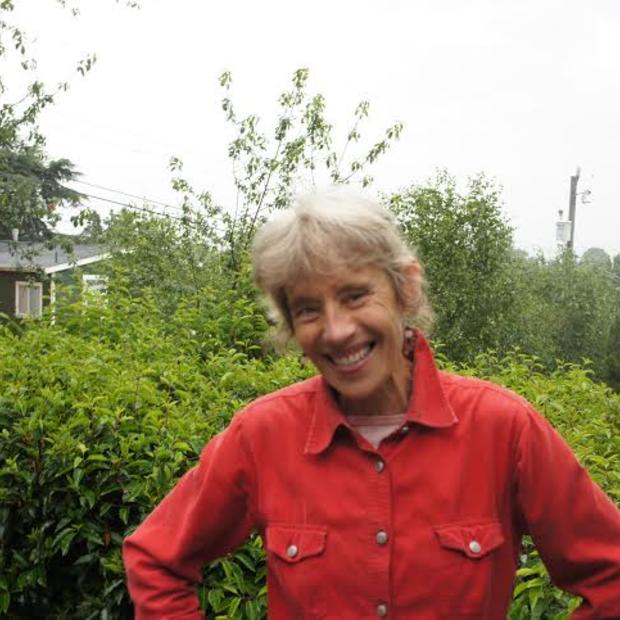Are coffee lovers a part of the solution to restore Puget Sound waters? Local roaster, Caffe Vita, hopes so. Ten percent of the purchase of its new blend, "12,000 Rain Gardens," will build gardens designed to filter polluted run off before it flows into waterways.
Why are rain gardens important to Caffe Vita? “Puget Sound is very important to Caffe Vitta," says Liz Webber, co-owner. "Our founder is from Seattle. I was born and raised here.”“This is one way, kind of one the most important way we’ve seen to prevent further damage and actually bring it back to a prior state.”
Click on the audio player above or here to listen.
At a launch party for the Rain Gardens coffee blend, partners in the campaign shared ideas. “What we really need to do is get the word out,” says David Burger is with Stewardship Partners, a non-profit which helps landowners protect the environment. “We’re really excited to be able to partner with a Seattle based business that can relay this message about polluted stormwater and how their customers can do their part.”
Stewardship Partners and Washington State University came up with the idea. If successful, the rain gardens will capture 160 million gallons of run off that would otherwise flow untreated into Puget Sound. Eight hundred gardens have already been built. The goal is 12,000 rain gardens by 2016. A cluster model has proven the most effective where neighbors come together and build multiple rain gardens. “We are working with the City of Seattle," Burger says. They have an incentive program with their Rainwise program to help. You get close to 80 percent of your rain garden paid for. Rainwise is in neighborhoods where polluted run off is the most serious, Ballard, Delridge and Windermere.
But rain gardens hubs are being created in counties all around the Sound: Kitsap, Mason, Pierce, Snohomish. Curt Moulton of is with WSU says, “Those hubs are at county extension offices in every county.” Volunteers are being trained to help people find information locally. Much of the research on techniques to help water infiltrate is happening at WSU’s research center in Puyallup. One technique is pervious pavement which absorbs water like a sponge. “It’s amazing to watch," Moulton says. "You can watch it rain and there’s no run off on the pavement. It’s actually just going straight down.”
Curtis Hinman is lead scientist for WSU’s Low Impact Development research facility, one of the largest in the country. Hinman’s team is working to find the best soil blends for rain gardens, “and test, see how well they remove pollutants like metals and oil and grease.” The results will be put into simple guidelines. “Like use this sand and mix in this much compost.” The latest discovery to filter pollutants is fungi. Mushrooms are the fruits of fungi. Different fungi filter different pollutants. “So for example some fungi, actually many, do a really good job of breaking down hydrocarbons, a really good job.”
A rain garden at Seattle’s BF Day Elementary is doing a really good job of filtering thirty five hundred square feet of roof water before it enters the Ship Canal. Three years ago a parent told the school about rain gardens and found a grant to back it up. School office manager Carrie Bauer had taken a master compost class and took the project on. “When I did, I thought why aren’t they everywhere?” she says.
Bauer’s family has lived in the Puget Sound region for generations. “I’ve seen salmon jumping where they’re no longer jumping. You know that’s not right. Not right at all. These kids need to have a good future. We have to clean our water, we have no choice.”
But will Caffe Vita’s 12,000 Rain Gardens Blend bring in more converts? Hilary Bromberg, Strategy Director with EGG, a firm specializing in sustainable brands, says the uniqueness of the campaign, gives it a leg up. Most fair trade coffees are for causes far away -- helping farmers earn a fair wage or protect rain forests. “But most of our concern happens in our own back yard," Bromberg says," and what’s more relevant to people’s backyard than Puget Sound?” What will ultimately dictate the success or failure of the rain garden blend is taste, says Bromberg. “People want to be socially responsible but in the end it’s going to be flavor that wins out.”
Customers randomly sampled at two Caffe Vita shops didn’t know about the new blend or rain gardens, but a barista says people are asking about it. The shade grown organic coffee beans are a blend from Ethiopia, Guatemala, and East Timor with, as the label puts it, “notes of dark cherry, cocoa and honey.”
Green Acre Radio is supported by the Russell Family Foundation. Engineering by Tom Stiles; produced from the studios of Jack Straw Productions with KBCS.



